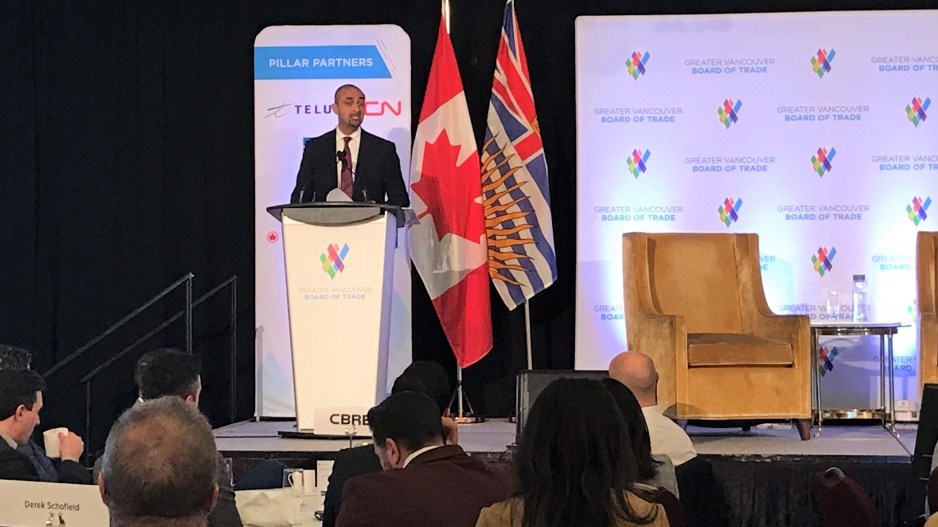Housing Minister Ravi Kahlon announced Wednesday (April 12) B.C. intends to become a leader in the digital permitting process with a $9-million grant to the Vancouver-based Digital Supercluster, a non-profit dedicated to advancing digital technology.
The three-year grant will be dedicated to accelerating the creation of new technologies in the construction sector, according to the Ministry of Housing.
The plan includes collaboration with partners in “industry, academia and at all levels of government” to create new digital tools for the construction sector. The grant will also work towards designing pilot projects to test those tools.
“The province’s investments in digitizing the housing sector will make B.C. a North American leader in digital construction and permitting through the digitization of the building code and advancing the adoption of technologies that help the sector work more effectively with regulators,” Digital Supercluster CEO Sue Paish said in a statement.
The Ministry of Housing and the Ministry of Citizens’ Services will also work towards digitizing the BC Building Code and the building permitting process with pilots in select local governments in 2024, according to the province.
These investments build on the Homes for People plan, announced at the beginning of April, which includes the intention to streamline and modernize permitting with the goal of speeding up the process and reducing costs, according to the province.
This is meant to build off what the province has called a digital “one-stop-shop” for permitting.
The one-stop-shop is meant to speed up internal decision-making within provincial ministries that involving the permitting process, Kahlon told Glacier Media.
Building in the province requires multiple provincial permit applications involving different ministries and processes. The government has said previously the average approval timeline is about two years.
“In the ideal world, I'd love to see a time where all applications – no matter where they are in the province – go through one system,” Kahlon said. “And the system automatically identifies what level of government needs to see the application and then the progress of that project can be tracked through one system. That's the ideal.”
Digitizing building permits will take roughly one year and the work with Digital Supercluster may take up to three.
“We want to get within the next two years, a system that connects all communities to the provincial permitting process,” Kahlon said.
“We want to find a way for proponents to not only have an easier way to go through one door, but also be able to see where their application is through the process. I know that uncertainty right now causes a lot of stress for people and we have to find ways to eliminate that.”




